Explorer of notes: Dario Marianelli and "Anna Karenina"
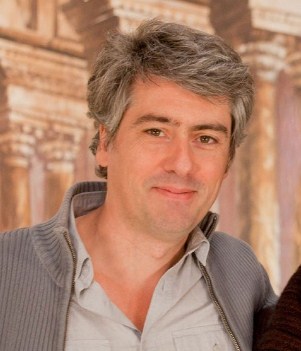 Exclusive interview with Academy Award-winning Italian composer
Exclusive interview with Academy Award-winning Italian composer
Dario Marianelli is probably the current film composer who best represents the glorious Italian film music heritage on the international scene. It's not a coincidence if local newspapers and journalists have already saluted him as the "new Ennio Morricone". The honorable title was tacked onto many Italian film composers several times, to the point of becoming almost a too heavy burden. However, going beyond such easy labeling, Marianelli seems in fact the only current Italian film composer to have found a real international dimension comparable to Ennio Morricone and also to that of Nino Rota or Mario Nascimbene. The curious thing is that Marianelli, unlike his predecessors, nurtured his talent and took his very first steps into the film scoring world well outside the Italian borders (he moved to London in 1990 and lives there since then).
The success and awards conquered since his big outbreak in 2005 – he won the Academy Award in 2007 for Joe Wright's adaptation of Atonement – encouraged and stimulated the brilliant creativity of the composer, who wrote some impressive scores distinguished by unique dramatic flair (the phenomenal "deconstruction" of Beethoven's music in The Soloist, once again directed by Joe Wright) and very unconventional lyricism (as in the liquid, ''foggy'' melodies of the recent adaptation of Jane Eyre starring Michael Fassbender and Mia Wasikowska). Marianelli is very careful never to fall into easy temptations of predictable symphonic stylings, but also in those of the diatonic minimalism so much in vogue in film music of today.
Marianelli defines himself first and foremost a partner, a collaborator and especially an ally of the filmmakers. He's conscious of his role in service of the film, but he doesn't sacrifice being a full-rounded musician, as evidenced by the exceptional score of Anna Karenina, once again reuniting with director Joe Wright and for which he received his third Oscar nomination. In this exclusive interview for ColonneSonore.net, Dario talks about his work for this adaptation of Tolstoy's great classic, his relationship with director Joe Wright and his life as a film composer.
ColonneSonore: Anna Karenina is your fourth collaboration with director Joe Wright. You both seem to have really found an ideal creative partnership. How your cooperation evolved over the years?
Dario Marianelli: We go along very well since the beginning of our collaboration, probably because we found out pretty quickly that we had, and still have, the aspiration to elevate the music from being a mere accompaniment to becoming a real character—it is a journey that we have explored since the beginning and in all our collaborations so far.
CS: This time you confronted one of the most classic novels of all time. How did you and Joe started to work on Anna Karenina? And what were the main challenges the film posed to you?
DM: The first conversation was a brief phone call. Joe was very excited and told me he had the idea of shooting Anna Karenina as if it was a ballet. In that moment, I did not understand very well what Joe had in mind. The idea of setting it all within an old theater had not yet materialized. But Joe knew from the beginning that the choreography and the music would play an essential role. The idea of using music and choreography to tell the story meant that both me and the choreographer (Sidi Larbi Cherkaui) had to start working before almost everyone else, because the music was needed as the basis of the choreography—the movements that actors had to learn were quite complicated, and Joe had to plan the shoot very carefully.
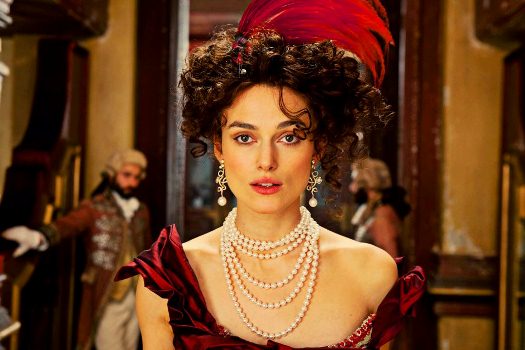
CS: As in Atonement, the score plays a very peculiar, even daring role: the music plays skillfully inside and outside the boundaries, mixing source music and traditional scoring. The music is part of the world in which the characters are living, but at the same time it works as an external narrator. How did you and Joe have structured this delicate creative approach?
DM: We had already experienced this type of approach during Atonement, or at least in part of it. In a sense, the work in Anna Karenina was more simple—we were not too worried of coming over the top, in fact, there was just the pleasure of discovering in how many different ways we could subvert the conventional division between the music and the sound within the world of the characters. The approach was quite clear from the start. We had to find the topics that could work as source music - for example, the waltz at the ball - and at the same time could be changed and developed in other situations in a way that they could take the role as score.
CS: As you said, you had to do part of the work much earlier than you usually do. Did you use the script as a starting point? How many themes you composed at this stage?
DM: The first few pieces were composed on the basis of the screenplay, and they were the two waltzes, a mazurka (which was almost completely abandoned after the shooting, except for the finale), several piano pieces that had to be "played" by some of the actors. I also wrote various transitions and scene changes, such as that at the end of the Ouverture, or by train to the office with the clerks stamping the paperwork to the rhythm of music, and then from the office to the restaurant where Oblonsky meets Levin. Then the pieces where you could see some musician, like the trumpeteer that welcomes Levin and Kitty in the house in the country, and others that were then discarded after the shooting. The two waltzes, however, were the most important parts and they contain the two or three main themes of the film.
CS: As in previous collaborations with Joe, there is a particular synergy between music and sound effects. On more than one occasion the sounds become part of the fabric of the musical score. Do you have a specific modus operandi for this aspect? Or is it something that arises spontaneously in the course of making the film?
DM: Quite spontaneously, ideas and opportunities will present themselves. But it is also true that we try, and in Anna Karenina many of these were planned before the shooting.
CS: The film composer sees often his work mistreated during post production phase, mainly because of an increasingly crowded sound effects track. You and Joe demonstrated how instead the two aspects can collaborate. Do you think the composer could or should be more involved after the recording of the score, unlike what usually happens?
DM: The standard is the lack of involvement during the early stages of designing a movie. My experience with Joe, who instead called me even before the script was completed, was very positive. In post production the main problem is still the lack of time, because traditionally the composer is hired quite late. I try to get around this problem and start working as soon as possible, no later than the beginning of the editing phase. Then, I personally believe that once the music is recorded the composer is better to stand back and let the director, the sound mixer and, if any, the music supervisor to be responsible to make a final balance between dialogue, sound effects and music.
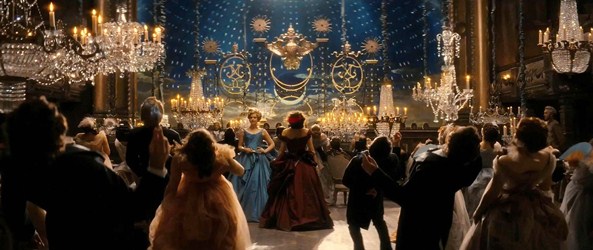
CS: The setting of the film and the literary nature of the story (19th century Russia) somehow "imposed" a very specific treatment linked to the symphonic literature of that period. At the same time, the score is full of folk-like melodies and tunes. How did you manage to merge these two aspects? Did you study and research the Russian music of the period?
DM: One of the things I did at the beginning of the work was to listen to a lot of music that is considered the beginning of the Russian national school. Glinka and Balakirev were especially influential to the approach of Mussorgsky, Rimsky Korsakov and music of the second half of the nineteenth century, which in turn prepared the road to Russian music of the twentieth century. I was very interested in trying to understand how the Russian national school had been more or less "invented" by musicians educated in the Western tradition, whom decided to use popular music as the foundation of "authentic" music. In this way I also listened to many of the popular songs that Balakirev had transcribed and used for various arrangements. It was a little vague peek, in the sense that I had no intention to compose a "pastiche" of Russian composers. Instead, I wanted to get closer to the same references that were available to the Russian composers of the second half of the nineteenth century. Of course it is unlikely a company, because you can not forget the twentieth century Russian - I think it feels pretty clear in the music of Anna Karenina.
CS: In addition to Tchaikovsky and Mussorgsky, I think there are some suggestions of the mocking irony of Shostakovich's Jazz Suites, especially for the contamination of symphonic forms and folk vocabulary. Was that a conscious reference? Or was the natural consequence of signing "immersed" in Russian music for so long?
DM: A little bit of both. Surely the Jazz Suites were present somewhere in my memory, but it is also true that for a year I was very immersed in Russian music of all kinds, and I am sure that the influences or contaminations are many.
CS: Did you use forms mainly related to dance and ballet, as mazurka, polka, waltz. In the course of film music becomes the basis of the choreography of the movements of the actors (as in the Visconti-like scene of the ball), but also of those of the camera. How did you find this perfect timing?
DM: Joe had begun to think about how to shoot the ballroom scene very soon. Together we tried to imagine more or less than they could last for several sections, and on the basis of those rough times I wrote the two waltz and mazurka. At that point Larbi began to choreograph the pieces, with a group of dancers of his company. We saw each other a few times and then we met again in London with Joe, where we tried with the actors and dancers, and several changes have proved necessary. Then I went to Antwerp, where Larbi lives and works, and again we tried to fit the music with dancing, and how we could change and improve. During this time Joe was meticulously planning the filming of the dance, which took place at Shepperton Studios in the space of a few days. All sections of the scene were filmed while the music (temporarily recorded with synthesizers) was playing by a huge speaker, and during scenes with dialogue was heard by the actors and dancers with tiny headphones well hidden.
Inevitably then, during the editing we found that the scene was quite a bit longer than necessary, and needed a lot of work to renovate, replace and largely rewrite the music to get the final result. In short, the timing was the beginning, but it took a lot of work to maintain it through the various stages of processing.
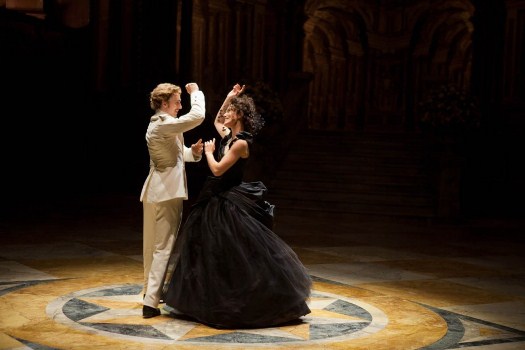
CS: In the score there is a folk melody ("Byeroza") sung by one of the characters which then becomes one main themes of the film. How did you find this theme?
DM: During the casting, Joe came across a young musician/actress of Russian origin, Aruhan Galieva. The idea of using Russian folklore as one of the cardinal points of the music existed from the earliest conversations, and we asked Aruhan if she could record a selection of popular songs, so they will be available during the pre-production. The destination in the story was not clear at that time. In any case, two or three of the songs she sang impressed us a lot, in particular "Byeroza", which sounded immediately familiar. I then remembered that Tchaikovsky was also hit by this song and used in the Fourth Symphony. It seemed a good omen, and I began to use it inside the pieces I was writing (in a rather different way to Tchaikovsky).
CS: Speaking of the themes of the score, can you tell us about their genesis and the way you have them changed and transformed over the course of the film? I noticed a particularly accurate, almost concert-like treatment.
DM: Perhaps more than in any other film I worked on, I felt the need to build the entire sound world starting from a few elements. It seemed important that, in the claustrophobic world imagined by Joe inside the theater, the various themes should live in close contact with the characters, or also become invisible (but audible) characters in the story. As I said, the first theme I wrote was the first waltz. I have thought of it as a theme that could get quite tragic or at least painful, if necessary. As often happens in my music, the "theme" is actually formed by two melodies coupled (a theme and a countertheme, if you will), and during the score both theme and countertheme appear multiple times, either alone or together - or alone but together with new counterthemes, which in turn function as autonomous themes in other occasions. Maybe it's a "concert-like" way of writing, but for me it has more to do with the threads that are woven into the story.
CS: I really liked the development of textures and the way you managed to give a specific density to seemingly simple musical ideas. The theme of Anna is emblematic in this sense, especially in the way it develops from a small motif to an enveloping melody. How do you conceives your themes? And how important is for you to be able to give a precise melodic identity to the characters?
DM: I find them on the piano, or on my keyboard with a piano sound, however. In fact I'm not interested in a very melodic identification of the characters—I find it redundant, since the characters already have their identity. I prefer to think of the themes as different, invisible characters, maybe the sound incarnation of abstract ideas or motivations, aspirations or unrealized, unspoken desires, destinies that have not yet been made. And even more: an eye that looks from outside, empathizes but does not intervene, like the chorus in a Greek tragedy.
CS: When you write a theme, do you hear it in your head already in orchestral form?
DM: I do, but not always. Sometimes a particular sound (orchestral or not) is really the first thing, the main idea, but often – especially with Joe – the music starts simply with the piano and it's orchestrated later.
CS: Historical dramas always allowed the composer a particularly rewarding musical treatment in terms of orchestral and symphonic writing, as evidenced by the history of film music. Do you think that this kind of movie is capable of influencing, for better or for worse, its music?
DM: Sure, but I think it's a matter of definition, and luckily there are exceptions. A movie is historical if you use certain costumes or a certain language, but you can redo Shakespeare with a modern twist, of course, and at that point it becomes less clear whether it is a modern film or historical fact. For me, the music is one of the characters, and the composer sometimes wears a costume like the other actors. However, I believe it would be a mistake to think that the costume coincides with the character. Even wearing a costume, the actor must always draw into himself to find something true and have a chance to resonate with the public.
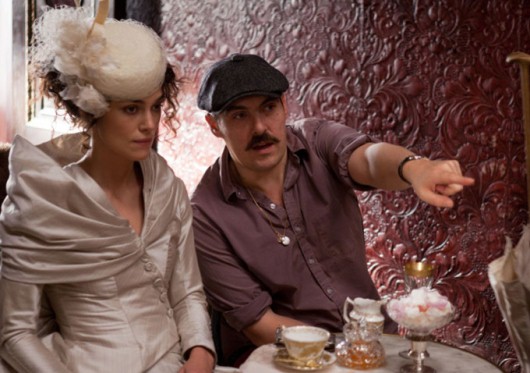
CS: Can you tell us about your collaboration with Dustin Hoffman in the unusual as director for the film Quartet? How was working with him?
DM: Very funny. Dustin Hoffman is a man full of experience and very funny anecdotes, and he knows how to tell them.
Quartet has been a quite simple job. It's a movie full of classical music, especially by Giuseppe Verdi—“Rigoletto” in particular plays an important part in the affair. I proposed to Dustin to derive the whole soundtrack (not much more than connecting pieces between one scene and another, and a slight commentary on the most melancholy of the story) by the melodies of “Rigoletto”. He liked the idea and I think the end result is a small unobtrusive score, which supports gently from behind the scenes some of the contemplative moments, without bringing completely incongruous references within the whole.
CS: This year you were nominated for an Oscar in a quintet really impressive, in the company of talents such as Alexandre Desplat, Mychael Danna, Thomas Newman and John Williams. How important is it for the composer see their work recognized and appreciated by their colleagues?
DM: It gives satisfaction, definitely. In the case of Oscar in particular, the nomination comes just by fellow composers and therefore I am very pleased.
CS: Let me a slightly ''parochial'' question: How much your Italian roots influence your writing and your work as a composer of music for film?
DM: Actually, I do not know. I am quite aware of the difference that exists between a somewhat "American" style to write music for film and a more "European" one. But these are vague speeches, in practice I think the formation of individuals mixes with personal tastes in different ways, as evidenced by the huge variety of approaches and talents in film music at this time.
CS: Many of our readers are aspiring composers who dream one day to be able to reach an international audience, as has happened to you after so many years of study and apprenticeship. You have an advice to give to those who want to do this job?
DM: Being very lucky, first of all. However I would say that perhaps one of the most important things is to understand that a film is a team effort, where it turns out a bit the story as if you were in a strange land, an expedition along with a team of explorers who help each other. I think it's the hardest thing for many composers, who spend years developing the craft on their own, often making journeys only within their own minds, in the inner worlds where words and communication with others are scarce.
CS: Your name has not yet appeared in an Italian production so far. Is there an Italian filmmaker you'd like to work with?
DM: If Marco Tullio Giordana would call, I would say yes.
CS: Last question: What is the music for the film according Dario Marianelli?
DM: I do not think much to film music as something separated from the music in general. I think about how the music is combined, over the centuries, with theater, dance, poetry, religion and ritual, ceremony, circus, or as it reached its autonomy in certain moments, and I think the distinctions are somewhat arbitrary.
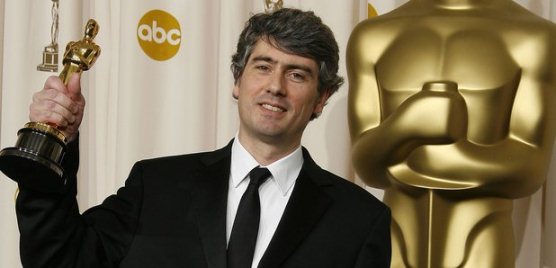
Thanks to Chantelle Woodnut (Air-Edel Management) and Dario Marianelli for his kindness.